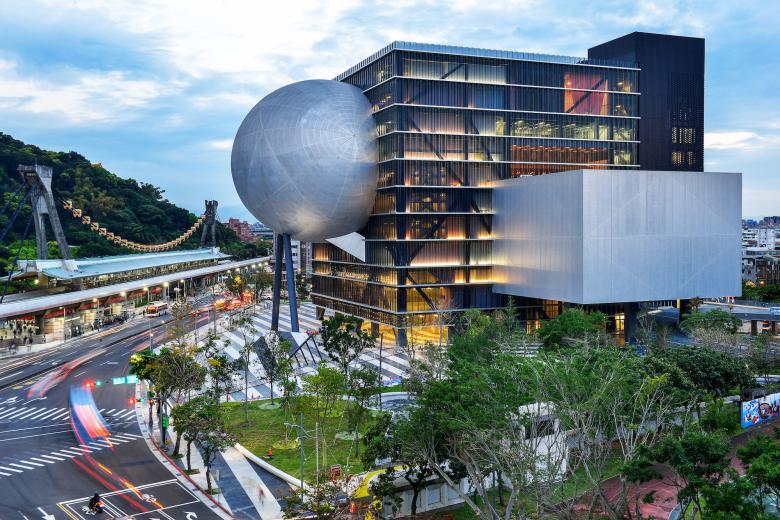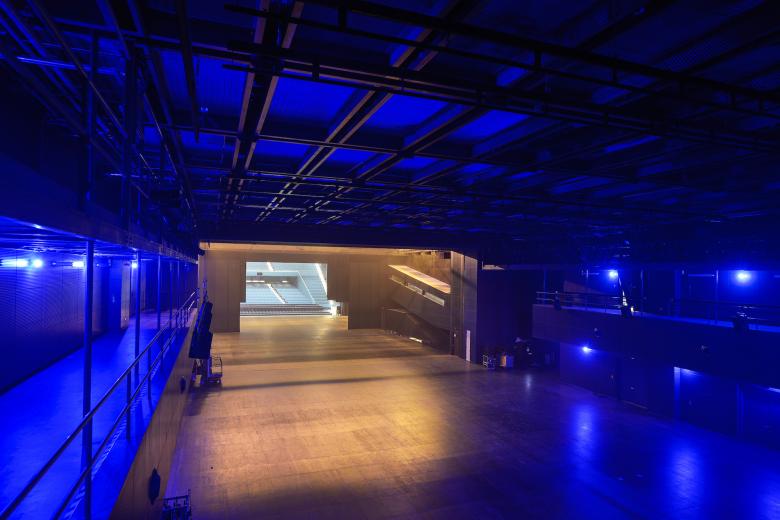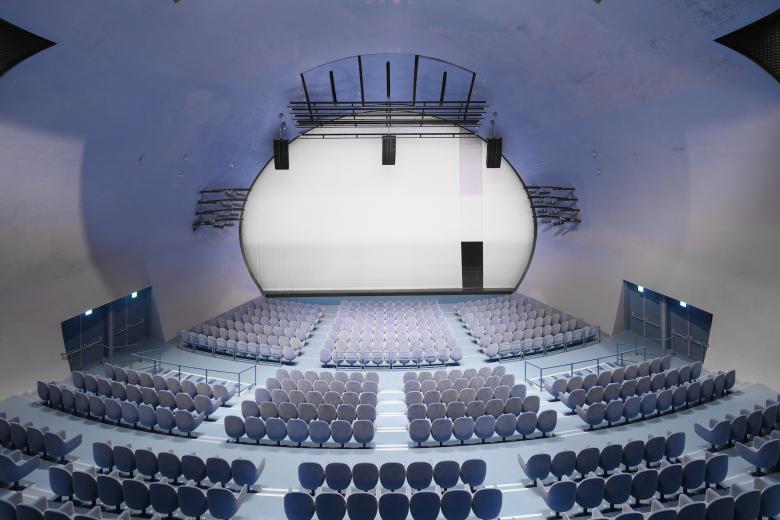The impressive Shilin Night Market is a magnet for locals and tourists in Taipei. Starting this week, the new Taipei Performing Arts Center (TPAC), designed by Rotterdam’s Office for Metropolitan Architecture, adds to the buzz of the neighborhood.
With the Cloud Gate Dance Theater, founded in 1973, Taiwan proved that a globally recognized troupe can arise from its theater scene. The Cloud Gate has its own premises, however, so the future will reveal whether or not the new TPAC can also inspire the scene in Taiwan. The construction of OMA’s design portends less than smooth sailing though — it took ten years to erect TPAC.
TPAC is a collage of “three traditional theaters together,” according to Rem Koolhaas, who designed the building with David Gianotten and the OMA team to create “new opportunities to conceive spectacles and performances.” The building is composed of a spherical Globe Playhouse, a Grand Theater, and a Blue Box, each plugging into a central cube containing the stages, back-of-house spaces, and support spaces. The Grand Theater and the Blue Box can be coupled to form a Super Theater, but the need for such a giant space may be limited.
Architecturally, OMA contrasts the opaque facades of the three theaters with the illuminated central cube clad in corrugated glass. The consequence of this decision is that the building seems bland and closed, like many other theaters — it is the shapes that animate the building.
The central cube is raised above the ground to create a “plaza” underneath. From here, a Public Loop — with portal windows open to views inside the theaters — runs through all of the production spaces. The hope is that people shy of visiting theaters but attracted to the food stalls at the night market might go for a stroll through the TPAC and see what Taiwan’s exciting theater scene is all about.




